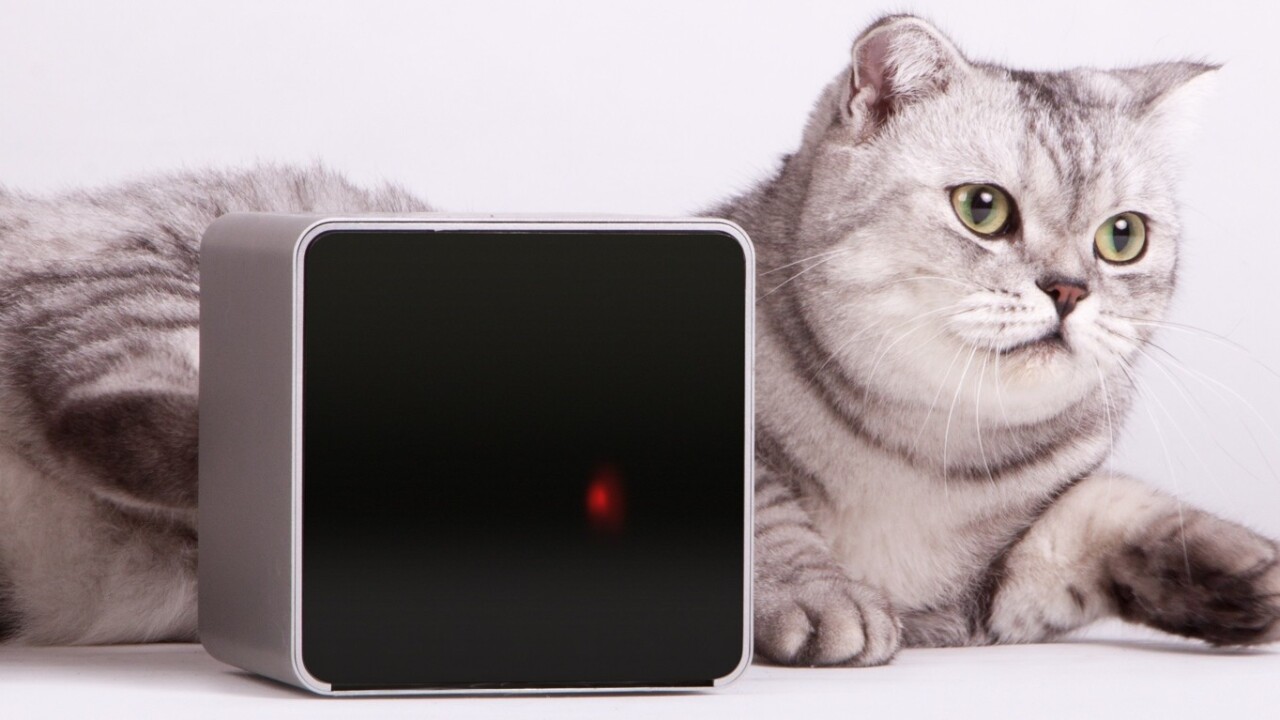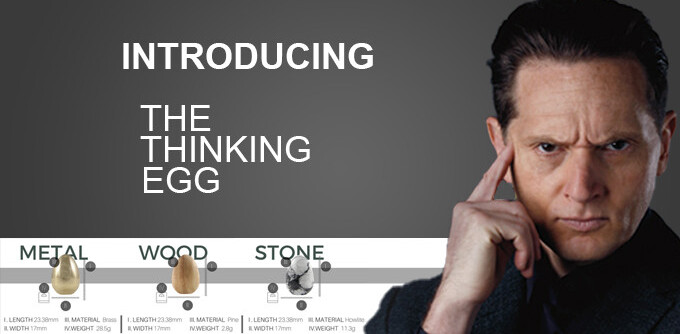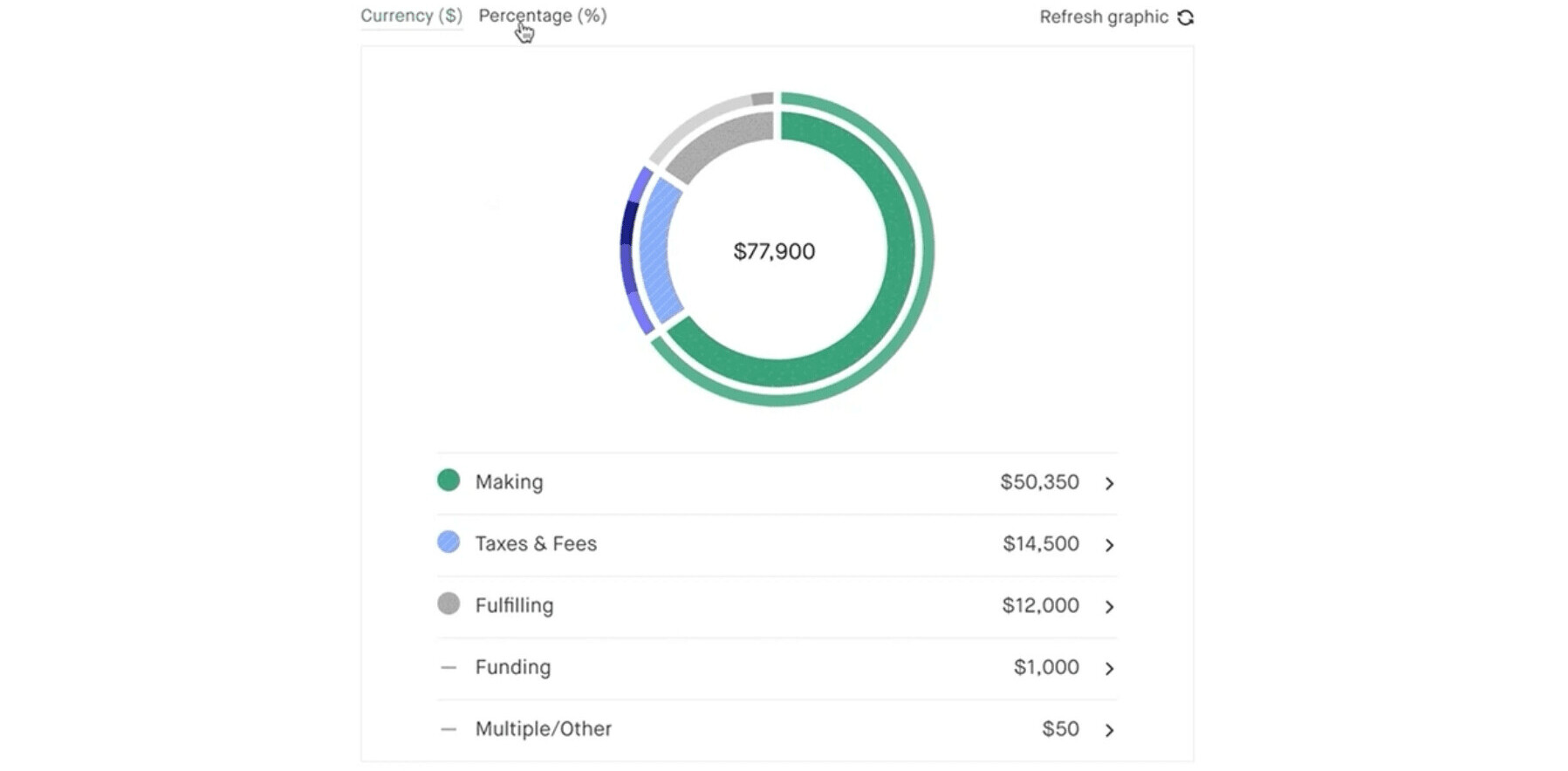
On a spring day in 2012, Alex Neskin was sitting in his recently rented apartment in Kiev, Ukraine, fitting a laser pointer to a webcam fixed on a small tripod and connected to an Arduino circuit board. The simple goal was to keep Neskin’s restless chihuahua Rocky entertained during the day, preventing him from ruining furniture and driving neighbors mad by barking.
Six months later, Neskin’s business card read as “Founder and CTO of Petcube,” a startup built around the idea of a remotely controlled laser toy that would allow people to communicate and play with their pets while away from home. With Neskin’s former colleague Yaroslav Azhnyuk joining as the CEO and Andrey Klen as designer, the team of three started preparations for a Kickstarter campaign.
Today, Petcube is going through its arguably most exciting stage. The startup has been widely covered in international tech media, raised some $250,000 on Kickstarter and is gearing up to start shipments in May. With the US as the main market, the team has also signed agreements with Japanese and South Korean distributors and is looking for the ways of penetrating European markets.

By the beginning of shipments, the team of nine-person will be spread across three continents with the CEO working in Silicon Valley, the CTO in China, and the rest at the head office in Ukraine. While there’s still time before the product comes to the home stretch, I caught up with Azhnyuk and Neskin to talk about pets, startups, and things in between.
Hardware is hard
When asked what was the most difficult thing for him personally was in the year and a half that have passed since Petcube’s first prototype was shown to the public, Azhnyuk names the emotional “roller coaster, when everything is great in the morning, but in a few hours you’re feeling like everything is ruined. It’s difficult to stay confident that you’ve chosen the right direction, and keep the team’s morale high.”
This difficult part is what requires hardware startups to be way more tough than ones developing software-only solutions, as for the latter much less time usually passes between the idea and the final product.

“Making a physical product is something very different from writing yet another piece of code,” Azhnyuk says. “In the startup world, it’s common that in half a year after the initial idea a [successful] startup would raise a series A round and already have a million of users.”
“It’s easier for software startups to create prototypes,” Neskin agreed. “The speed depends only on your programming skills. In hardware though you need to order and receive the components, check everything, and do some low- and high-level programming on top of this.”
If everything goes smoothly for the team and first Petcubes are shipped in May, it will mark almost exactly two years between the initial idea coming to Neskin and the final product. The co-founders don’t seem to be frustrated about the process taking so long.
“If you look at [other] projects that combine hardware and software, it took them three to four years [to finalize the product],” Azhnyuk argues. “I think, two years is a good timing for a product like ours.”
“I think I will never return to making ‘pure’ software [startups],” Neskin confessed. “Hardware is like a drug — you try it once and can’t live without it anymore.”
In a China shop
Two months before starting their crowdfunding campaign, Petcube’s co-founders enrolled into the hardware startup accelerator Haxlr8r in “the world’s electronics capital” Shenzhen, China.
“Haxlr8r with its mentors and experience is priceless, they saved us from making a lot of mistakes,” Azhnyuk said. “It’s the best place for hardware teams that want to make the step from a prototype to batch production.”
“In my opinion, there are three coolest hardware startup accelerators in the world — Haxlr8r, Bolt.io, and Lemnos Labs,” Neskin added.
While in China, the Petcube team finalized the product, launched their Kickstarter campaign and began negotiations with potential manufacturing partners. Although most of them were conveniently located in Shenzhen area, even talking face-to-face turned to be not enough to reach an agreement.
“Four months in China were very hard for me,” Neskin recalls. “No one there speaks English, even at factories. There are interpreters, of course, but talking to them is not easy either. They have this one word, ‘understand.’ They’d say it all the time, but usually they understand nothing.”
After continuous struggles with manufacturers, Petcube team learned a lesson that the shortest way is not always the best. As a surprise even for themselves, Azhnyuk, Neskin, and Klen ended up signing an agreement with an undisclosed European company, which will act as an intermediary between the team and a Chinese factory.
“To create a product, we needed experience. We received a great deal of it in four months in China, but it’s still not enough,” Neskin explained.
Very soon Neskin will have to go to China again, to control manufacturing process on the spot, but now he’s going to be better prepared.
“I attend Chinese language courses [in Ukraine]. The language turned out to be not as hard as I thought, its grammar is quite simple. The only problem is the characters that are unusual,” he said.
Are Ukraine’s current troubles affecting Petcube?
Being spread between three continents, Petcube team has an interesting view on the startup’s national identity. The question is especially important given that the home country of the team has been going recently through rough times with violent clashes between riot police and anti-governmental protesters, which significantly affected the local IT community, not to mention the current reports of Russian military activity in the south.
“From the business standpoint, we position ourselves as a startup that works on the Western market, in the US,” Neskin said. “But as Ukrainians we consider ourselves a Ukrainian startup.”
“We are worried [about clashes in Ukraine], but the workload on the team is extremely high, so we only can read the news during the night,” Azhnyuk added. “As Petcube is a US company, the turbulence in Ukraine barely affects our work. Our goal is to build a business that would be an example for thousands of Ukrainian inventors who did not think globally before.”
Sharing the fun
Weeks shy of the beginning of mass production, the Petcube team has a clear product vision and interesting ideas about areas where it can be used.
“One can think that we’re a company that produces and sells gadgets,” Azhnyuk said. “But it’s not exactly like this. For Petcube as a business the priority is the mobile app, which will become a social network for pet owners and will allow people to play with their pets, or pets of their friends and other pets access to which has been made public.”
The Petcube app for iOS is about to be sent to the App Store, while the development of the Android version has just begun. In addition to being the main interface for customers to play with their pets, the app is seen as an important way of acquiring new users. You don’t have to be a Petcube owner to download the app and play with “publicly available” pets.
The notion of being able to make a Petcube available for others to use immediately raises legitimate concerns about privacy, but the startup claims to have everything covered.
“There are three levels of access, and you can’t make your Petcube available to everyone forever.” Azhnyuk explained. “You can give an unlimited access to your family and roommates. You can choose people from your contacts in the app and give them access for specified time periods. Or you can make your Petcube public for the next 15 minutes and share a special link to social networks.”
Although it’s likely that not many pet owners will share their Petcube with everyone in the network, there is another kind of user who would do that gladly. Those are animal shelters in the US, and Petcube is targeting this sector.
Working to animal shelters would be mutually beneficial for Petcube, the shelters and end users, and also could raise the numbers of animals adopted from shelters. Downloading an app seems way easier than getting into a car and going to a shelter usually located somewhere in the countryside. Although there are no definite agreements yet, Petcube is hopeful about the idea.

About as hopeful are some 2,000 people who have already pre-ordered Petcube from Kickstarter or the project’s website. But the one who arguably is most looking forward for the start of shipments is Neskin’s chihuahua Rocky. Even though he was the muse for the project, he doesn’t get to play with the prototype very often, Neskin admitted. At the moment, the team has just one prototype and it’s mostly being worked on in the office to ensure hardware and software perfection.
➤ Petcube
Get the TNW newsletter
Get the most important tech news in your inbox each week.







